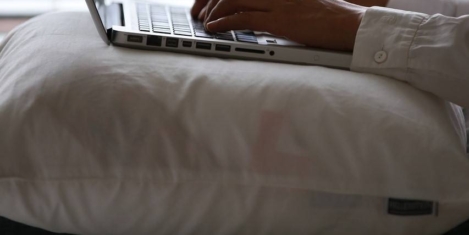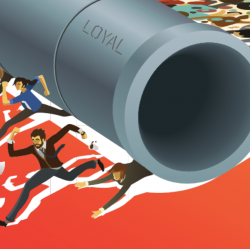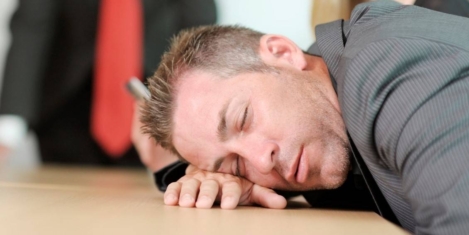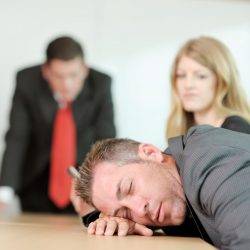June 18, 2018
Capability is a common cause for dismissal, but many organisations lack the right policy
 ‘Capability’ is one of the five fair reasons for dismissal. However, it can be split into two distinct parts; inability to perform the job as a result of incompetence, and inability to perform the job through sickness absence. Some companies blur the two and have one policy to cover both, but I’ve always found that to be confusing. A disciplinary policy should cover poor performance or misconduct. A capability policy describes the process that needs to be followed when someone is either on repetitive short-term leave, or long-term sick leave, to assist with their return to work, or eventual fair dismissal.
‘Capability’ is one of the five fair reasons for dismissal. However, it can be split into two distinct parts; inability to perform the job as a result of incompetence, and inability to perform the job through sickness absence. Some companies blur the two and have one policy to cover both, but I’ve always found that to be confusing. A disciplinary policy should cover poor performance or misconduct. A capability policy describes the process that needs to be followed when someone is either on repetitive short-term leave, or long-term sick leave, to assist with their return to work, or eventual fair dismissal.










 More than 6 million UK adults are already self-employed or working as a contractor in the so-called gig economy, with a further 6 percent of currently full-time professionals looking to make the transition this year. New research of more than 2,000 UK adults commissioned by
More than 6 million UK adults are already self-employed or working as a contractor in the so-called gig economy, with a further 6 percent of currently full-time professionals looking to make the transition this year. New research of more than 2,000 UK adults commissioned by 
 UK office workers spend an alarmingly limited amount of time outdoors each day, claims new research from Ambius, which found that almost 40 percent spend a maximum of just 15 minutes outside, excluding their commute to work, and an additional 22 percent spend a maximum of 30 minutes outside. This is even less than prisoners, who require ‘at least one hour of suitable exercise in the open air daily’, according to UN guidelines. On average, the British workers surveyed spend more time per day at their desk or workstation (6.8 hours) than they do in bed (6.4 hours), relaxing at home (3.5 hours) or outdoors (37 mins). A lack of fresh air (57 percent), insufficient natural light (49 percent), and an absence of indoor plants (36 percent) were the biggest source of frustration for employees. Introducing indoor plants (49 percent), nicer artwork (50 percent), and a more interesting colour scheme (54 percent), topped the list of employees’ requests to improve their workplace.
UK office workers spend an alarmingly limited amount of time outdoors each day, claims new research from Ambius, which found that almost 40 percent spend a maximum of just 15 minutes outside, excluding their commute to work, and an additional 22 percent spend a maximum of 30 minutes outside. This is even less than prisoners, who require ‘at least one hour of suitable exercise in the open air daily’, according to UN guidelines. On average, the British workers surveyed spend more time per day at their desk or workstation (6.8 hours) than they do in bed (6.4 hours), relaxing at home (3.5 hours) or outdoors (37 mins). A lack of fresh air (57 percent), insufficient natural light (49 percent), and an absence of indoor plants (36 percent) were the biggest source of frustration for employees. Introducing indoor plants (49 percent), nicer artwork (50 percent), and a more interesting colour scheme (54 percent), topped the list of employees’ requests to improve their workplace.
 A third of UK office workers (30 percent) have admitted to only completing 1-4 tasks every day, according to a new report from Fellowes, which claims productivity levels in offices across the UK have fallen to a dramatic low. A quarter of workers admit they are unproductive for up to two hours a day, equating to a staggering 40 million-hours in lost productivity across the UK every week. Compared to data from Fellowes in 2017, the average office worker has lost an extra 30 minutes each day to productivity issues., office product specialists, released their second Productivity in the UK report today to help businesses understand what their employees need to increase output and the tools that can help. The study also found that over a third (38 percent) of office workers felt their employers weren’t doing enough to help their productivity and nearly half (40 percent) even went as far as to say they were more productive than their boss. On average Brits failed to meet deadlines at least once a week and 65 percent think a four-day working week would improve productivity.
A third of UK office workers (30 percent) have admitted to only completing 1-4 tasks every day, according to a new report from Fellowes, which claims productivity levels in offices across the UK have fallen to a dramatic low. A quarter of workers admit they are unproductive for up to two hours a day, equating to a staggering 40 million-hours in lost productivity across the UK every week. Compared to data from Fellowes in 2017, the average office worker has lost an extra 30 minutes each day to productivity issues., office product specialists, released their second Productivity in the UK report today to help businesses understand what their employees need to increase output and the tools that can help. The study also found that over a third (38 percent) of office workers felt their employers weren’t doing enough to help their productivity and nearly half (40 percent) even went as far as to say they were more productive than their boss. On average Brits failed to meet deadlines at least once a week and 65 percent think a four-day working week would improve productivity.


 UK office workers are under a tremendous amount of stress, and much of it is directly related to the way their work is being managed. That is the conclusion of a report by Workfront, which finds that office workers are becoming frustrated and burned out by poor work tools, processes, and communication. Four out of five office workers confessed that they feel burnt out and 73 percent expect their stress levels at work to increase in the near future. Nearly three quarters (74 percent) admit to feeling unrecognised and un-useful at work. With lack of communication and not knowing what others are working on (37 percent) cited as the number-one pain point across the board for stressed UK workers, it’s clear that businesses need to break down current silos, allowing people to engage more freely with senior staff members and see how their efforts impact the wider team. The study found that poor communication and visibility into work is UK workers’ number-one pain point in terms of work stress. It also reveals that 42 percent of office workers put in more than 6 hours of overtime per week and that 7 out of 10 office workers expect their stress levels at work to increase into the future.
UK office workers are under a tremendous amount of stress, and much of it is directly related to the way their work is being managed. That is the conclusion of a report by Workfront, which finds that office workers are becoming frustrated and burned out by poor work tools, processes, and communication. Four out of five office workers confessed that they feel burnt out and 73 percent expect their stress levels at work to increase in the near future. Nearly three quarters (74 percent) admit to feeling unrecognised and un-useful at work. With lack of communication and not knowing what others are working on (37 percent) cited as the number-one pain point across the board for stressed UK workers, it’s clear that businesses need to break down current silos, allowing people to engage more freely with senior staff members and see how their efforts impact the wider team. The study found that poor communication and visibility into work is UK workers’ number-one pain point in terms of work stress. It also reveals that 42 percent of office workers put in more than 6 hours of overtime per week and that 7 out of 10 office workers expect their stress levels at work to increase into the future.




 In a workplace dominated by insecurity, gig work and intelligent machines we need to improve our understanding of their potential impact on health, safety and wellbeing claims a new report.
In a workplace dominated by insecurity, gig work and intelligent machines we need to improve our understanding of their potential impact on health, safety and wellbeing claims a new report. 
 A new report a new report by the Centre for Ageing Better has called for government and employers to support older workers to stay in work for longer, help those who have fallen out of work involuntarily to return and to create workplaces that work for all, irrespective of age. The report claims that ensuring older workers are able to stay in good quality employment is essential to the future of the UK economy and will relieve pressure on public finances. It makes some key recommendations that include access to flexible working hours and workplace adaptations to help people manage pressures such as caring responsibilities and health conditions, which become more prevalent with age. It also calls for equality of opportunities in the workplace as older workers in the UK experience age discrimination in recruitment and progression. They are less likely to be offered opportunities for development – across the whole of the OECD only Turkey and Slovenia have lower levels of on-the-job training for older workers than the UK. Research shows they are also the most likely to be stuck on low pay and feel most insecure about their jobs.
A new report a new report by the Centre for Ageing Better has called for government and employers to support older workers to stay in work for longer, help those who have fallen out of work involuntarily to return and to create workplaces that work for all, irrespective of age. The report claims that ensuring older workers are able to stay in good quality employment is essential to the future of the UK economy and will relieve pressure on public finances. It makes some key recommendations that include access to flexible working hours and workplace adaptations to help people manage pressures such as caring responsibilities and health conditions, which become more prevalent with age. It also calls for equality of opportunities in the workplace as older workers in the UK experience age discrimination in recruitment and progression. They are less likely to be offered opportunities for development – across the whole of the OECD only Turkey and Slovenia have lower levels of on-the-job training for older workers than the UK. Research shows they are also the most likely to be stuck on low pay and feel most insecure about their jobs.








February 16, 2018
Pearls of elemental wisdom about workplace design and management
by Mark Eltringham • Comment, Facilities management, Workplace design
(more…)